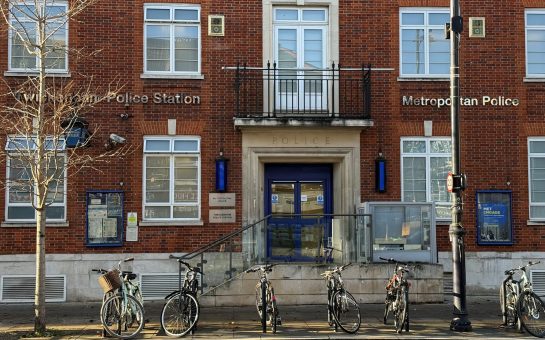People using mental health services are two and a half times more likely to have HIV than the general south London public a new study has suggested.
Research led by King’s College London has revealed that 2.47% of people who have been in contact with mental health services in the region in 2019 have a recorded diagnosis of human immunodeficiency virus (HIV), the virus responsible for AIDS.
These figures equate to a total of 24.7 people per 1,000 compared to 10 per 1,000 in the general population living in Lambeth, Southwark, Lewisham and Croydon in 2019, an area with approximately 1.3 million residents.
Study author Dr Margaret Heslin from King’s College London said: “The relationship between HIV and mental illness is a complex one.
“The increased prevalence could be a real increase resulting from people with mental health needs being more at risk of acquiring HIV, or from people with HIV being more likely to develop a mental illness, or a combination of both.”
According to previous research, infectious diseases such as HIV have been largely ignored when it comes to mental health disorders.
Sexual health as a whole is also often neglected by researchers and policymakers despite being a key building block of physical health.
In this study, the team combined clinical data on the numbers of people over the age of 16 accessing mental health services in south London, with national data on HIV prevalence from the UK Health Security Agency.
Overall, 181,177 people had contact with mental health services provided by hospitals in South London and Maudsley (SLaM) National Health Service Trust for the first time between 2007 and 2018.
Of these, 2.47%, or 24.73 per 1,000, had a recorded diagnosis of HIV at any point during this time period, either before, during or after contact with mental health services, although 27% had not received a formal mental health diagnosis.
The two most common types of mental health diagnosis were substance disorders (18%), followed by mood disorders (15%).
The team caution that their figures are likely to be an underestimation of the true prevalence of HIV in south London as they only considered those who had been tested for the virus.
Their findings, they say, support the extension of HIV testing to non-specialist services and on a broader scale, the need for enhanced sexual health testing, treatment and prevention for people accessing mental health services.
Heslin said: “Future work should include examination of risk factors for HIV in people in contact with mental health services so we can think about how to reduce the risk in this group.
“We know that people with mental illness often receive worse physical health care than the general population, so we need to examine whether people with mental illness and HIV get the same standard of HIV care as the rest of the population.”
The research is published in the journal BMJ Open.





